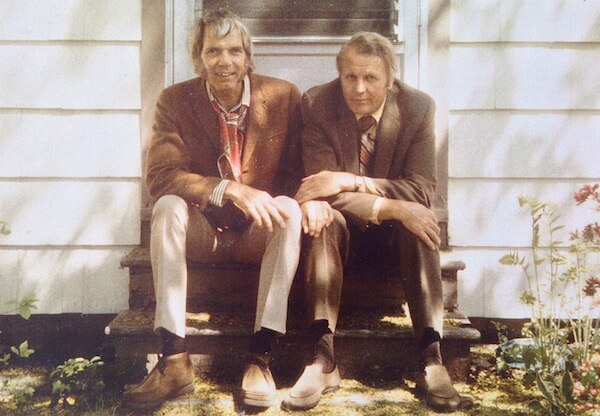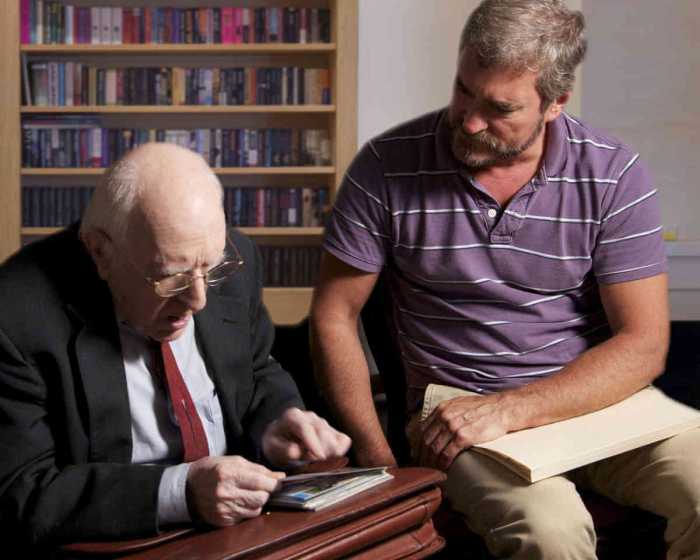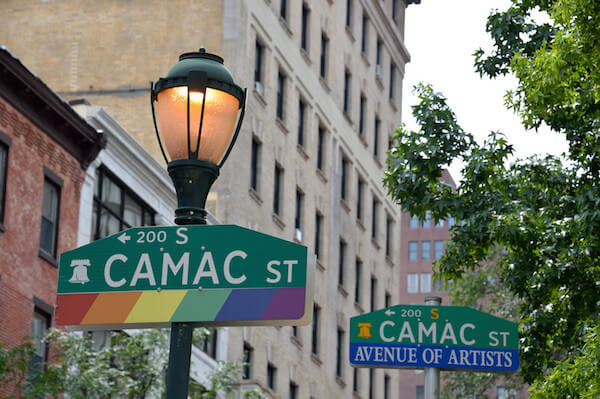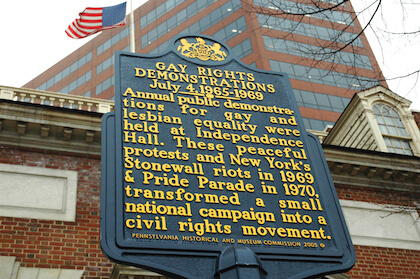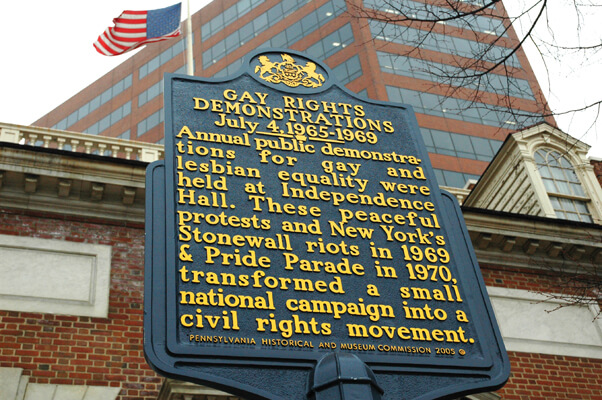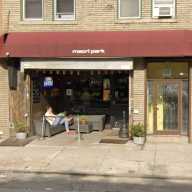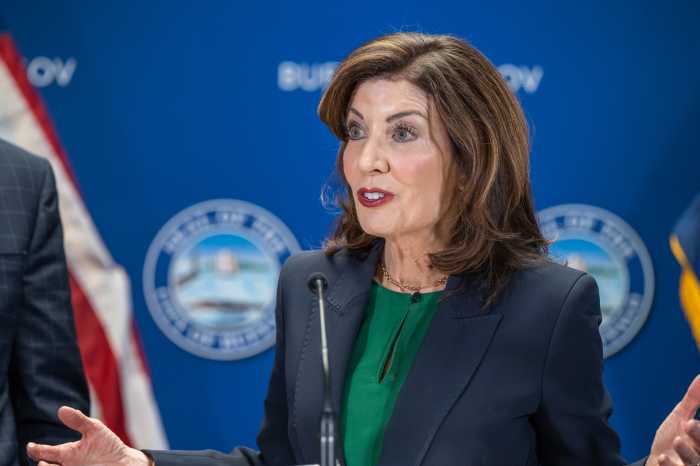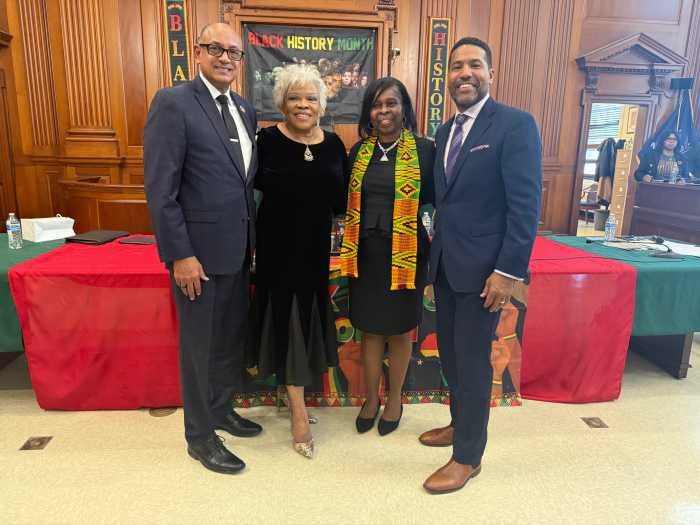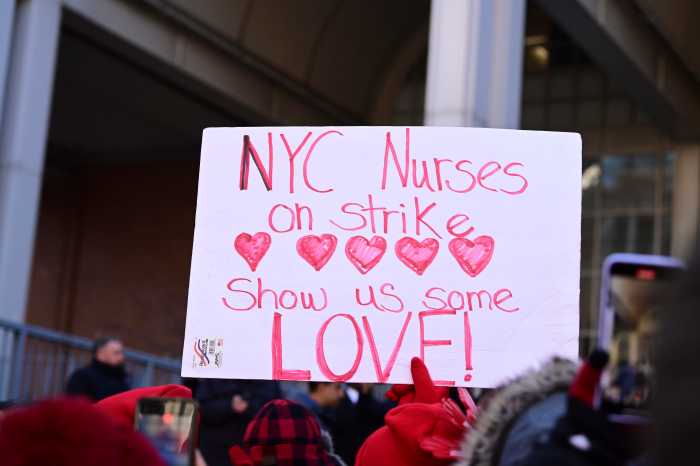Reverend Robert Wood, as a young pastor and LGBT activist. | EQUALITY FORUM
BY KELSY CHAUVIN | If optimism is rooted in love, then the Reverend Robert Wood is a beacon of hope. Wood has been part of the LGBT civil rights movement since its early days in the 1950s, investing the love he found as a husband and pastor in the greater pursuit of equal rights over the past six decades.
Today at age 92, he rejoices in the progress that’s been made — and, like a true activist, still finds encouraging ways for the movement to grow stronger.
Wood is one of the “Gay Pioneers” being honored as part of Philadelphia’s 50th Anniversary Celebration of LGBT Civil Rights, taking place outside Independence Hall this July 2-5 (LGBT50.org and the June 11 issue of Gay City News ). Planned by the Philadelphia-based Equality Forum (equalityforum.com), the event commemorates the Fourth of July gay Annual Reminder marches that began in 1965 and served as a catalyst for the development of a unified equality movement across the nation.
A decade before Stonewall, Reverend Robert Wood penned “Christ and the Homosexual,” went on to join early demonstrations
Just days before that first Independence Hall protest, Wood and his husband Hugh Coulter were part of the “very first gay picket line in Washington DC, in front of the Civil Service building,” he recalled.
“It was the last Saturday in June of 1965,” said Wood. “Hugh and I drove down from New York. I was the only clergy; I was wearing my collar. The late Frank Kameny had gotten a permit for two hours, and had some signs made. There were, I think, 17 gay men and eight lesbians. We got photographed while we marched — I don’t know if it was the Secret Service or what. Groups also picketed the White House, they picketed the Pentagon, and then on July Fourth, they picketed Independence Hall.”
Despite the fact that his advanced age will not allow him to travel to Philly from his home in Concord, New Hampshire, Wood’s story will be one of those told at this year’s Fourth of July celebration.
Wood began his public service at 18, when he enlisted in the Army soon after the attack on Pearl Harbor. He was severely wounded in the invasion of Italy, and went on to earn an honorable discharge, a Combat Infantry Badge, a Purple Heart, two battle stars, and a Bronze Star for heroic achievement in combat.
Once he returned stateside, Wood resumed his studies in theology, and was ordained at Fair Haven, Vermont’s Congregational church. It was the beginning of a 35-year career as a parish pastor.
And then he made history. Following up on his 1956 gay magazine article “Spiritual Exercises,” Wood spent two years penning the groundbreaking “Christ and the Homosexual.” The book was a brave coming-out of a Christian minister, in part because Wood used his own name and included a photograph of himself in his clerical collar. It also called for the Church to welcome homosexuals and to recognize same-sex marriage.
“I wrote it in 1958; it was published in February 1960 at 221 pages,” said Wood, an early self-publisher. “I was willing to pay to get my message out, so I paid Vantage Press to publish it. We negotiated a price for hardcovers with dust jackets. Turns out it was well received, and all 3,000 copies sold within two years… I got over 300 letters from people who appreciated what I did.”
He added, “I wrote over 1,000 sermons as a parish pastor, but my one book accomplished what I set out to do. It won two awards of merit. But it made a lasting impact, so I was pleased with that.”
Reverend Robert Wood (r.) and his husband Hugh Coulter in 1972. | COURTESY: REVEREND ROBERT WOOD
A profound devotion, openness, and loving spirit have been hallmarks of Wood’s life, most importantly in his 27-year relationship with Coulter, an abstract artist, political activist, and World War II veteran. Coulter died in 1989, but Wood still speaks of his husband with the affection of a young man in love.
When asked what he might have changed about his past, he answered, “I wish that Hugh and I had met sooner than we did. We had both been looking for each other for a decade. And finally in May 1962, the good Lord put us both in the same place at the same time, so we could finally meet. We did get 27 years together, but I would’ve been glad for another 10.”
Wood said that while coming out challenged his father and brother, his mother was more supportive.
“Years later after my father died, my mother came to live with Hugh and me,” he said. “They related very well. One day, one of my church women said to Mother, ‘Don’t you wish Bob had given you a nice daughter-in-law?’ And she said, ‘Oh but he gave me a nice son-in-law.’”
In the community he helped nurture, Wood bestows praise where it’s due, applauding the Rainbow Flag as a symbol of inclusion and groups like PFLAG that are “a positive step for all concerned — they do a great job being very open and very supportive.”
And building on his lifetime of knowledge emboldens Wood’s thinking, including a number of daring ideas for how today and tomorrow’s LGBT activists might apply their efforts.
“Stop using the word ‘straight,’ and say ‘gay’ and ‘non-gay,’” he said. “The opposite of straight is crooked, not gay.
“And I hope that someday we’ll have a memorial to the thousands of GIs who died in the closet, without having any recognition of who their authentic souls were.”
On a lighter note, he also believes Cialis and Viagra will soon be using gay men in their advertising.
As Wood reminisces about past triumphs and obstacles, it’s easy to grasp how his peaceful wisdom benefitted his personal relationships, his congregations over so many years, and the overall LGBT community. His is a voice that brought a new angle to the conversation about Americans’ personal politics — one of faith, equality, and the boundless power of love.
To read more about LGBT leaders from the past century, visit gaypioneers.com. For travel tips in Philadelphia on Fourth of July weekend, read Gay City News’ June 11 article at gaycitynews.nyc/passage-philadelphia.

